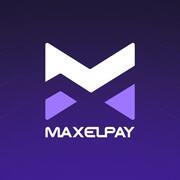
Best Cryptocurrency Wallets 2026
What are Cryptocurrency Wallets?Cryptocurrency wallets are secure digital wallets that are used to manage cryptocurrencies and blockchain assets. They are used to send, receive, and trade cryptocurrencies. A cryptocurrency is a digital or virtual currency, secured by cryptography, which resides on decentralized networks based upon blockchain technology.Many cryptocurrency wallets allow users to hold multiple currencies such as Bitcoin, Ethereum, Litecoin, Ripple, and Dogecoin, while others will ...
We’ve collected videos, features, and capabilities below. Take me there.
All Products
Learn More about Cryptocurrency Wallets Software
What are Cryptocurrency Wallets?
Cryptocurrency wallets are secure digital wallets that are used to manage cryptocurrencies and blockchain assets. They are used to send, receive, and trade cryptocurrencies. A cryptocurrency is a digital or virtual currency, secured by cryptography, which resides on decentralized networks based upon blockchain technology.
Many cryptocurrency wallets allow users to hold multiple currencies such as Bitcoin, Ethereum, Litecoin, Ripple, and Dogecoin, while others will only support a single cryptocurrency. The owner of the assets is the only entity with access to the cryptocurrency funds.
Cryptocurrency wallets do not physically store the blockchain assets. Instead, the wallets safely store public and private keys which prove ownership of your digital money and allow you to make transactions. Public keys point to the address of your funds on the currency’s blockchain. Public keys are shared when you wish to receive payments. Private keys are unique to an individual’s cryptocurrency wallet, are never shared, and are required to conduct any transactions related to their cryptocurrency assets.
Some wallets offer additional functions such as signing keys that are used for identification, executing smart contacts, and signing digital documents.
Businesses use crypto wallets to accept payments for products and services through cryptocurrency gateways.
When some wallets are created, a ‘seed’ phrase can be requested by the user. The seed is a lengthy-phrase that is an unencrypted form of the private key generated. If access to the wallet becomes misplaced, damaged, or compromised the seed phrase can be used to re-access the wallet, associated keys, and cryptocurrencies.
For additional security, some wallets use multi-sig (multi-signature) protection which requires two or more keys to initiate transactions. The keys can be held by multiple parties. Often each key is held on a different device, typically a mix of a mobile app and an offline hardware wallet.
A custodial wallet or hosted wallet is a service provided by crypto exchanges. When you purchase crypto the exchange holds the private keys and manages the cryptocurrency in their wallet until you withdraw it. It eliminates any actions you would need to take to store and secure your keys.
Security measures to employ when using cryptocurrency wallets to reduce your risk of theft include keeping current on wallet software updates, opting in for two-factor authentication, and considering multi-signature access.
Types of Cryptocurrency Wallets
Cryptocurrency wallets come in different forms.
Software Wallets (also referred to as hot wallets/storage given their ready connectivity to the internet) have keys stored in an app or other software. These wallets can be accessed through the cloud, mobile apps, or computer desktop installations. You can manage all your digital assets in one place, control your private keys, send and receive crypto from anywhere in the world, interact through usernames rather than long public key addresses, and shop anywhere they accept cryptocurrency. Software wallets are also more vulnerable to hacks and viruses.
Hardware wallets store keys on a USB drive that must be connected to your computer to use your cryptocurrency. Paper wallets have keys generated and stored on paper, usually via a QR code.
Hardware and paper wallets (cold wallets/storage as they are usually offline) help preserve your privacy and are less vulnerable to hacking. However, they risk being lost or destroyed and are not as convenient to use.
These are considered non-custodial wallets or non-hosted wallets, where you are in control of your private keys and cryptocurrency holdings. You are responsible for remembering your private keys and for maintaining security measures to protect your assets. If you no longer have access to your keys, you will never be able to access your funds.
Cryptocurrency Wallets Features
Cryptocurrency wallets should have most or all of these capabilities:
Storage of public and private keys on software, hardware, or paper depending upon the wallet type.
Communicates with blockchain ledgers to store, send, receive, and trade cryptocurrencies
Balance Monitoring
Multi-cryptocurrency support
Provides security measures to ensure private keys are only known and accessed by the owner of the cryptocurrency assets.
Signing support
Implemented through the cloud, mobile apps, desktop, USB/flash drives or paper depending upon the wallet
Cryptocurrency Wallets Comparison
Before selecting a cryptocurrency wallet, consider the following factors:
Use Case: If you use your crypto to pay for products and services then you will want a hot wallet that is mobile, or cloud-based. If security is your top concern, then a hardware wallet would be a good choice. If you are using crypto as an investment for long-term savings, then cold wallets, as either a hardware or paper wallet should be considered. Hardware wallets are good choices for long-term storage. Paper is often considered for storing large amounts of cryptocurrency.
Cryptocurrency Assets: A cryptocurrency exchange will often recommend a wallet. You can also decide to use their custodial wallet services. When dealing with multiple cryptocurrencies, select a wallet that supports your crypto assets, as wallets that support multiple cryptos will not support every cryptocurrency.
Cryptocurrency Wallets Pricing Information
Wallet prices range up to $200 or more depending upon the type. Hardware wallets are the most expensive. Some wallets are free. Often you will pay a flat fee or a percentage of the transaction amount depending upon the nature of the transaction.
Cryptocurrency Wallets FAQs
What do Cryptocurrency Wallets do?
What are the benefits of using Cryptocurrency Wallets?
The main benefits of cryptocurrency wallets include:
- Convenience: Online wallets are an easy way to use cryptocurrency to pay for products and services and to receive crypto payments from anywhere in the world
- Cost: lower transaction fees than traditional financial institutions
- Security: Secures your private keys
- Balance Monitoring
How much do Cryptocurrency Wallets cost?
What are the best Cryptocurrency Wallets products?
These are some of the popular cryptocurrency wallets.























